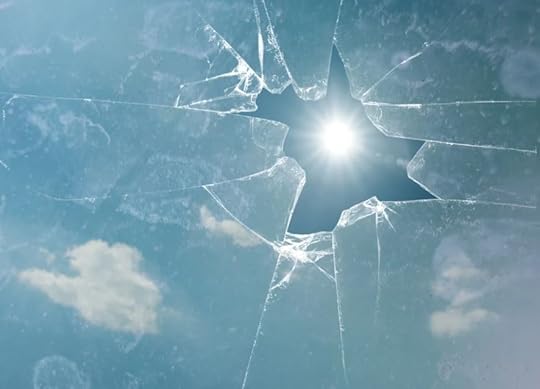The Sceptics Claim that Near-Death Experiences Are Not Real: A Philosophical Reason Why the Sceptics Are Wrong About Their Conclusion
 How real is reality?
How real is reality?The reality of near-death experiences (NDEs) have been questioned by the sceptics. The sceptics have put forth a number of physiological and psychological explanations for the cause of NDEs: hypoxia, hypercarbia, endorphins, katemine, temporal lobe seizure, depersonalization, fantasy proneness, cultural influences and so on. These explanations lead the sceptics to believe that NDEs are not real. They are just images produced by the dying brain.
Susan Blackmore claims that the dying person picks up some sensory information that the person uses, together with previous knowledge and the power of imagination, to piece together the event. For example, a person who sees the operating room during her operation while dying simply registers some pictures, sounds and tactile sensations during the event. Then, she assembles this information, using previous knowledge about operating rooms and her colourful imagination in order to come up with the result. Basically, the person reconstructs the reality of the operating room out of sensory information, previous knowledge and colourful imagination. But the experience is not real.
The claim that NDEs are not real is problematic even on the empirical level. For example, Janice Miner Holden (pp. 185-212) reviewed ninety-three reports of out-of-body perception during near-death experiences and she found that ninety-two percent were accurate, verified by outside sources. It is very difficult to claim that people make up these images when these images have such high accuracy rate.
Beyond the empirical proof, the philosophical interpretation is also troublesome. People who have NDEs claim that the experience is real. On the other hand, the sceptics basically say that it is not real, just seems to be real even though they experience it as real. Their argument is that even though the experience is not real, it seems as real as the waking state of consciousness the rest of the people exist in. However, if this claim is taken seriously, the reality of people’s lives are in trouble. After all, if both the NDEs and the waking state of consciousness are experienced as completely real, then, what makes one experience real but not the other? In short, how does one determine what is real if human beings cannot trust their experiences to tell what is real and they can be so easily mislead by these experiences?
If the above sceptical claim is taken seriously, it is possible to argue that the waking state is not real either. René Descartes has advanced a possible argument in the seventeenth century that the waking state is not real. He argues that people can experience a dream as real, so it is possible that they can also mistake the waking state as real. Maybe, the waking state is a dream and people just think that it is real. Descartes could be right. It is possible that death is the moment of awakening from this dream to a state that is even more real, a reality that the sceptics so nonchalantly dismiss. Of course, it is possible, but only possible, given the uncertainty of people’s experiential status in this argument. The point is that this entire argument removes people’s ability to figure out and rely on which human experiences are real and which human experiences are not. After all, if NDEs seem only real and they are not, maybe the reality people usually experience seems only real and it is not.
Basically, the sceptics of NDEs need to be careful about removing people’s ability to tell what is real. If the sceptics claim that one experience is perceived as real as the so-called real reality, but it is still not real, they put people’s ability to tell what is a real reality in jeopardy. In this case, the sceptics have to advance a further argument about why anybody should think that the world perceived in the waking state of consciousness is real.
Similar articles: The Veridicality of Near-Death Experiences, Are Near-Death Experiences Veridical? A Philosophical Inquiry Materialism Is Not Just Metaphysically Mistaken But It Is Also Dangerous



